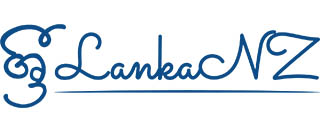Regardless of financial known-how or ability to understand maths, there’s a way to invest your hard-earned cash.
You’re getting your financial ducks in a row and you’re ready to start investing. But what should you do with your money? There are so many options and they sound confusing.
It’s actually pretty easy to choose when you figure out how much cash you have to invest, and the time you have. From easiest to most difficult, here are the top 7 investment types.
1. KiwiSaver
If you are a Kiwi getting a regular pay check, you should have KiwiSaver. It’s a form of managed funds, where you give a set percent of your income every pay period. Your contributions are added with others and then invested in shares on the stock market. The returns are prorated and reinvested in your KiwiSaver funds.
KiwiSaver is a no-brainer in many respects. The money disappears from your pay check before it even hits your bank account. This means there’s no way you’ll be able to spend your savings. Your employer matches your contributions up to a certain percentage. And, the government makes a contribution every year—free money from the government? Yes please! You can take advantage of compound interest too, every year your fund grows and grows with no extra input from you.
The biggest problem with KiwiSaver is that you can only access it outside of retirement in very few circumstances. You can apply to use it as a first home house deposit, or in cases of extreme financial hardship. While you can pause your contributions, there is no way to withdraw your money until you’ve retired. This is also a great thing—we all can raid our savings accounts to cover extra expenses or for a splurge purchase, and this removes all risk of doing so.
There are a few scenarios where a KiwiSaver account isn’t ideal:
- If you’re going to retire in the next five years and have an existing retirement savings fund
- If you don’t contribute regularly, the management fees will outstrip the rate of income and you’ll lose money
- If you are thinking of signing up your child, you’ll want a kid’s KiwiSaver account, which doesn’t charge management fees. Children don’t get the government contribution every year, and once you’re signed up, that’s it for life- so consider this before signing up your child.
Should you have KiwiSaver? Yes. But you need something else.
2. Savings Account
Regardless of your long-term and retirement savings, you should have a savings account with enough to cover three to six months’ worth of living costs in it. It’s there to cover any unexpected expenses, like if your car breaks down. It’s also easily-accessible if you need it to cover costs should something happen that impacts your ability to earn an income.
However, a savings account is not a wise form of investment. Interest rates are low to negligible, and don’t keep pace with inflation. That means by the time you access your retirement savings, your money is worth less than before due to inflation.
Should you have a savings account? Yes. But, you need to have something else.
3. Term Deposits
Term deposits are when you allocate a chunk of your cash for a fixed time, at a fixed interest rate. The longer you invest, the higher the returns. Usually, the amount you need to invest can be small too, starting with a few thousand dollars.
This form of investment is good because their interest rates are higher than savings accounts. You don’t have to think – the interest rate is set, the timeframe is set, the returns are guaranteed. The banks really like having your money guaranteed for periods of time.
The downside is that if you need to access your money before the term ends, you can be penalised. But this is why you leave cash in a easily accessible savings account, so you don’t need to break your term deposit in an emergency.
4. Managed Funds
This is basically what KiwiSaver is. They take your money, invest it alongside others, and then your returns are pro-rated.
Private managed funds do offer flexibility that KiwiSaver doesn’t. You can choose your term length, how much to invest, and if you reinvest the returns or bank them. There are providers who will invest even small sums of money, while other managed fund advisors require more substantial investments. Returns are variable and depend on the provider.
5. Exchange Traded Funds (EFTs)
Don’t be fooled by the acronym; this is EFTs, not the current scam NFTs (non-fungible token, and, don’t).
EFTs are another type of pooled investment. It’s similar to a managed fund in that sense, but ETFs don’t usually trade on the share market. Instead, transactions are private. They are great because they offer the cushioning effect of diversity, and they are very cheap.
However, they are subject to trading fees, operational expenses, and lack of liquidity; you can’t access these funds in a hurry. They also tend to be grouped together, in one sector, commodity, of type of asset. That means they aren’t as diverse as other investment types, so they can be riskier than a very broad portfolio. Your returns depend on the provider.
6. Property
Property is an easy investment in many ways, most people understand the basics: buy a home, rent it out, make money while the tenants pay off the mortgage. Then at the end, you have an appreciating asset to sell, or you can continue to receive income from the tenants.
However, it has a high barrier to entry, needing a reasonable deposit on the property. You also put in a lot of hard work, will need knowledge of the industry, regulations, and laws. Your income is very dependent on finding amazing tenants who pay the rent on time and take good care of the property. It also means your money is locked up in the property; while you can use the property as leverage for more income, if you suddenly need a bunch of money, you’d have to sell and that is likely to take time.
7. Shares
Buying shares directly rather than using a broker requires a lot of knowledge and time. If you seek to make money from profitable trading be warned, it is very difficult – 80% of traders fail, and quit. You’ll need to pay constant attention to the local and international market, the individual businesses, and have a way to buy and sell. In NZ, you can use a platform, a broking firm, or a financial adviser.
In general, this type of investment is not advised, as it leaves you open to huge risks. As a layperson, there is a huge amount to learn, you have to:
- Have time as a buffer to account for market fluctuations
- Understand the business or industry you’re investing in
- Avoid popular and ‘next-big-thing’ investments
- Be patient
- Resist the urge to sell and buy constantly
- Diversify your portfolio
- Ignore your emotions
If you’re prepared to play the long game though (time in the market beats timing the market), investing in shares may still work for you. Share values in good companies will increase over the long term.
If in Doubt: Seek Professional Advice
While you definitely can invest as you wish, there may be certain types of investments that are better for your situation. If you’re unsure or want to seek professional advice, contact us at Smart Adviser today. Even if we simply confirm what you know, that can help assure you that your funds are in the best place. We can also help you structure your money so you have buffers, savings, and a plan for all contingencies.








